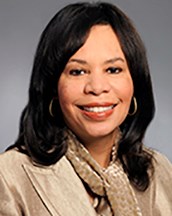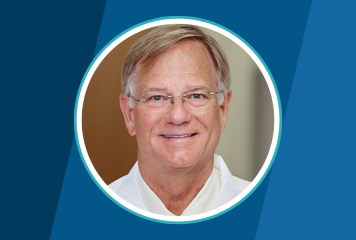
In recognition of the inaugural APOL1-Mediated Kidney Disease (AMKD) Awareness Day
Janice P. Lea, MD, MSc, FASN, FASH, is Professor of Medicine at Emory University in Atlanta, and Clinical Director and Interim Division Chief of Nephrology. She has been designated as a Master Clinician at Emory Healthcare and serves as Chief Medical Director of Emory Dialysis Outpatient Centers. Dr. Lea is a widely recognized expert in hypertension, chronic kidney disease, kidney health disparities, home dialysis and overall outcomes of end-stage renal disease patients. She has served as a member of the Nephrology Board since 2022.
The prevalence of chronic kidney disease (CKD) in the United States is well known among my colleagues, affecting more than 20 million Americans, 600,000 of whom have end-stage kidney disease (ESKD). But what is often overlooked is the disproportionate impact of CKD in African Americans. While African Americans account for around 13% of the U.S. population, they alone account for 30% of patients with ESKD. Nearly half of them are at risk for CKD with a 3.5 times greater likelihood of progressing from early CKD to ESKD.
In many cases, at-risk African Americans are unaware of their status, and may not even think to as their physician about CKD, or have access to a specialist. Black patients are less likely to be identified as kidney transplant candidates, be referred for kidney transplant evaluation or complete the evaluation, and be placed on the transplant waiting list. Once listed, Black patients also wait longer and are less likely to receive a donor kidney—either living or deceased. As physicians, it is incumbent upon us to advance health equity and consider how to address this problem by understanding the problem.
To begin with, we must understand the factors contributing to the higher prevalence of CKD in African Americans. High rates of hypertension and diabetes, lower access to health care services, socioeconomic status and cultural or lifestyle factors like diet are all contributing factors, but perhaps one of the most important to consider is genetics.
The discovery in 2010 of genetic variants in the apolipoprotein L1 (APOL1) was a breakthrough in changing paradigms around CKD—it is the strongest genetic association of any complex disease. Most notably, APOL1 has been discovered to be toxic to kidney membranes and cause proteinuric kidney disease of people of recent African ancestry. It is key to predicting high risk of CKD progression and targeting treatment.
I have devoted my career to focusing on CKD disparities in African Americans. We are now conducting clinical trials, but our work can be advanced further with the help of internists who educate themselves about the at-risk populations and prevalence of these diseases. Around 13% of African Americans have the abnormal APOL1 gene and 25% of those have risk for kidney disease. One of our goals is to spread the word about this in as many ways as possible, foster interactions that raise awareness and encourage more widespread testing. It is most important that primary care physicians are aware of this disparity as their patients who are at risk are less likely to see a nephrologist or even think about it, if their kidney function is not significantly abnormal. In addition, specialists who treat patients with African ancestry with hypertension—cardiologists, endocrinologists—are encouraged to screen for proteinuria and consider testing their patients for the APOL1 variant. They can refer their patients to clinical trials and to nephrologists for more intense monitoring as well.
No matter the specialty we work in, we are all physicians with a common cause—to do everything in our power for the well being of our patients and to reduce the inequities that lead to illness and death.
For more information, visit this website dedicated to APOL1-mediated kidney disease (AMKA).



